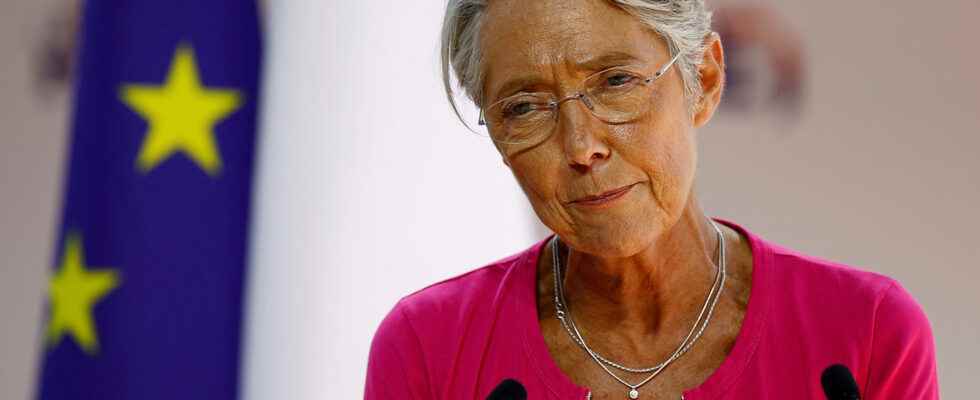Prime Minister Elisabeth Borne spoke at the opening of the Medef summer university, the Meeting of French Entrepreneurs.
His speech was expected. Elisabeth Borne spoke on the occasion of the opening days of the summer university of the Mouvement des entreprises de France (Medef), which are held at the Longchamp racecourse (Haut-de-Seine). The Prime Minister immediately recalled that “climate change is no longer an inconvenient truth but a reality that destroys”. “It is a danger that weighs on our economy, our daily life,” she added. Elisabeth Borne then explained that “a democracy is attacked, entire cities are destroyed (…) human lives are lost and that France gave its full support to Ukraine. “Yes, freedom has a price,” she insisted, after describing the sanctions. She then sent a spade to Medef boss Geoffroy Roux de Bézieux, declaring that there was “no excess profit on the side of the State” when the latter had declared on France Inter that the State was “a super profiteer. “We have protected our country from the inflationary spiral,” she added. “The next few months and years will be difficult.”
“Degrowth is not the solution,” she said.
On the issue of energy, Elisabeth Borne confirmed that “Europe will run out of gas this winter and that there is no immediate alternative” if Russia further reduces its gas exports. France is “less exposed but not out of risk. We will have less gas this winter and our nuclear fleet is also experiencing difficulties, we must prepare for rationing,” she conceded. “Faced with the threats of shortages, we have only one way: the reduction of energy consumption”, hence the need to follow the sobriety plan presented last July by the President of the Republic Emmanuel Macron . “The state will be the first to set an example,” she explained. She urged companies to choose “an ambassador of sobriety”, on the model of the Covid referent.
In the second part of her speech, Elisabeth Borne spoke about the ecological transition and the need for radical change. Nevertheless, she registered against the decline, explaining that it was not “the solution”, favoring “planning”. “We need a global and concrete plan for further transformations”.
